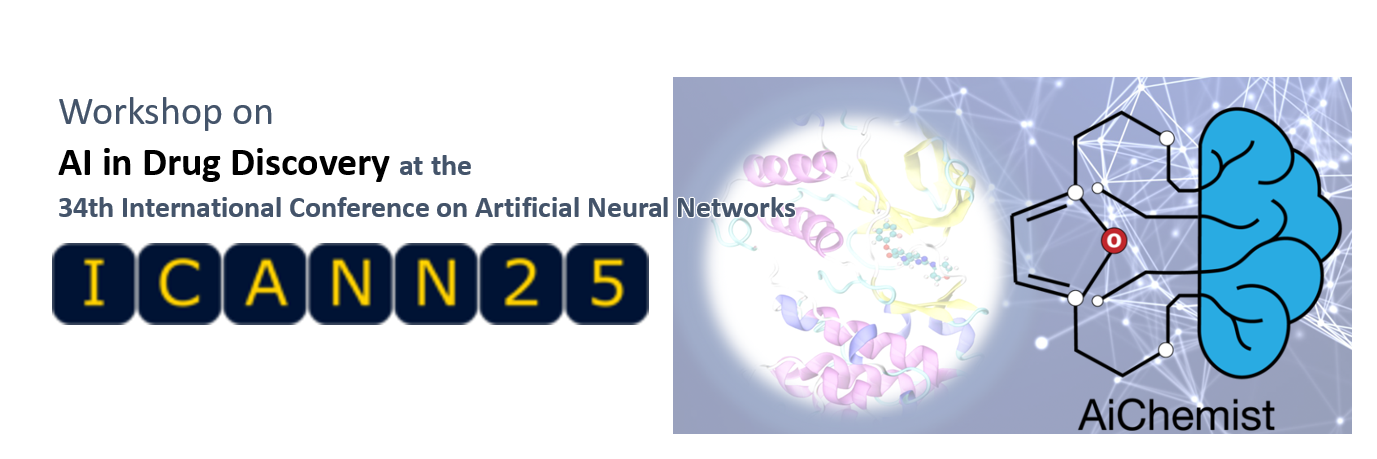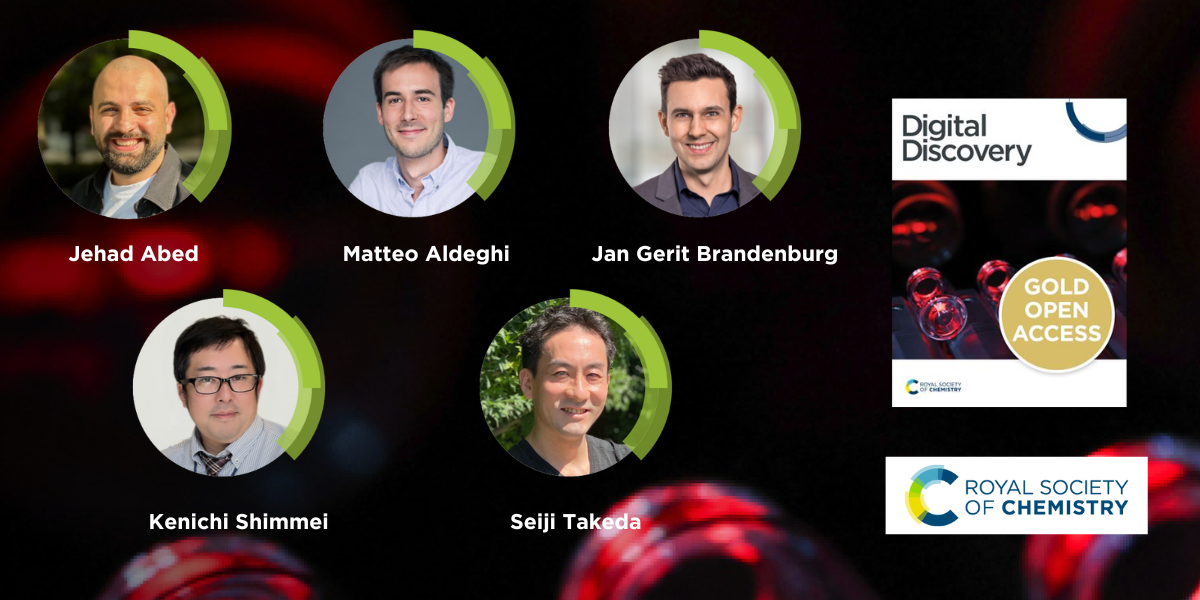Welcome to the first Digital Discovery newsletter of 2026! We’re pleased to share a recap of the most important developments in 2025, and highlight some upcoming events the journal is supporting. We wish all of our readers, authors, reviewers and editors a successful new year in 2026. Get future updates directly to your inbox with our email alerts. Sign up here.
Latest News
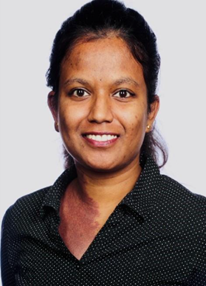
We’re delighted to welcome Dr Indra Priyadarsini to the Editorial Board of the journal as an Associate Editor. Dr Priyadarsini is a Research Scientist at IBM Research – Tokyo, where she focuses on developing models and algorithms for foundation models in materials discovery. She earned her B.E. in Electronics and Communication Engineering from PES Institute of Technology, Bangalore, India, in 2016, followed by an M.E. and Ph.D. from Shizuoka University, Japan, in 2019 and 2022, respectively. Her doctoral research centered on optimization algorithms and deep learning. She is currently actively involved in advanced research related to AI for Math and Science, multimodal foundation models, and their application to accelerated scientific discovery. She has contributed to open-source frameworks in AI for science and has been recognized with the IPSJ Industrial Achievement Award (2024) for her impactful work in AI-based materials research.
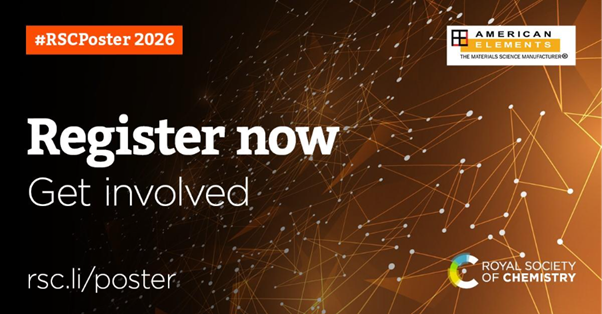
We are very excited to announce that the 2026 #RSCPoster Conference will be taking place for 24 hours starting 3rd March 2026, 12:00 UTC.
The #RSCPoster conference is an annual event that has become a staple on many scientific community calendars. Held entirely online on LinkedIn over 24 hours, the unique format removes the environmental and financial costs of attending a traditional conference, and helps scientific researchers share their work and network across disciplines, wherever they are in the world. Find out more and join in: https://rsc.li/poster
2025 in Review
Digital Discovery introduced a new article type, Commit, for incremental improvements to articles previously published in the journal. This could include improved hardware designs, new features in software, or expanded datasets. Find out more in our Editorial at DOI: 10.1039/D4DD90053G, read the first Commit in DOI: 10.1039/D5DD00089K, and contact the Editorial Office at digitaldiscovery-rsc@rsc.org with your questions or comments.
Jan Weinreich and Daniel Probst received the Digital Discovery Outstanding Early Career Researcher Award 2025 for their paper “Learning on compressed molecular representations”. Their work uses string compression to predict molecular properties, with performance competitive to state-of-the-art graph neural networks. Find out more about the winners and their work in our blog post.
We were pleased to welcome three new Associate Editors to the journal’s Editorial Board, Prof. Milad Abolhasani of North Carolina State University, United States; Prof. Xin Hong of Zhejiang University, China; and Dr Melodie Christiansen from Merck & Co., Inc., United States. We also bid farewell to Editorial Board member Dr Linda Hung of the Toyota Research Institute, United States. Her insights and support of the journal from the outset were essential to its present success, and we wish her well in her future endeavours.
Our editors were pleased to meet the community at events such as AI4AM, Pacifichem, and WATOC. We were pleased to support the Accelerate Conference, and invite the participants to contribute to a themed collection of articles in the journal. We look forward to sharing news on the launch of a further themed collection on large language models, and the line-up of accepted papers from our collection on quantum computing, in the coming months.
Upcoming events
Digital Discovery Associate Editor Prof. Joshua Schrier will be attending Chemical Compound Space Conference 2026 and presenting awards from Digital Discovery and PCCP for the best posters.
Digital Discovery will feature contributions from the second international symposium on High-Throughput Catalysis Design, in a joint collection with Reaction Chemistry & Engineering and Catalysis Science & Technology. We look forward to working with the participants in due course.
Follow our channels below to keep up to date on the events we’re supporting in 2026.
Submit your work to Digital Discovery
Find out more about Digital Discovery on our webpage, where you can also find our author guidelines. Digital Discovery has received a 2024 Impact Factor of 5.6, has an article acceptance rate of 67%, and provides a first decision on articles sent to peer review in an average of 45 days.
Publishing open access with RSC journals unlocks the full potential of your research – bringing increased visibility, wider readership and higher citation potential to your work. As a not-for-profit organisation serving the chemical sciences community, we ensure that our article processing charge (APC) remains the most competitive of major publishers. More details can be found here and the APC for Digital Discovery is £2200. You can also use our journal finder tool to check if your institution currently has an agreement with the RSC that may entitle you to a discount of the APC.
Stay Connected
Postdoc or early career researcher? Interested in building your peer review experience and helping improve open data at Digital Discovery? Consider becoming a data reviewer. Find out more on our blog post.
Follow us on LinkedIn and Bluesky for new articles and the latest news from Digital Discovery and related journals at the Royal Society of Chemistry.





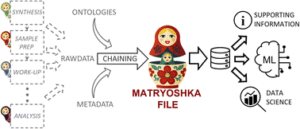




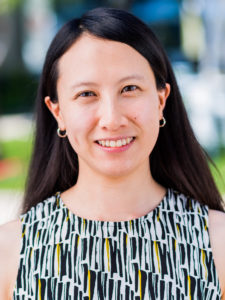
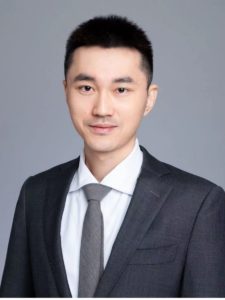 His research centres on uncovering reaction mechanisms and structure–performance relationships in molecular synthesis. His group is particularly focused on integrating mechanistic understanding with data-driven approaches — including the development of chemically interpretable molecular graph models and transfer learning methods to overcome small-data limitations in organic chemistry.
His research centres on uncovering reaction mechanisms and structure–performance relationships in molecular synthesis. His group is particularly focused on integrating mechanistic understanding with data-driven approaches — including the development of chemically interpretable molecular graph models and transfer learning methods to overcome small-data limitations in organic chemistry.

